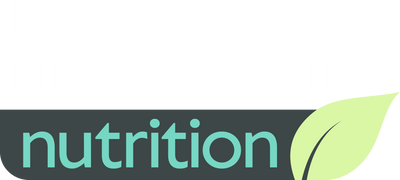Hidden Dangers of 6 Common Food Additives You Should Know About
March 22, 2024
Eating healthy isn't just about focusing on natural, nutrient-dense foods. It also involves paying attention to the seemingly innocuous ingredients that we willingly ingest with every meal. Food additives are widespread in modern diets, but not all are benign. Some have been linked to a variety of health issues, ranging from allergies to cancer. Here's a deep dive into six common additives that could be jeopardizing your well-being.
Nitrites Found in Biltong and Preserved Meats
-
What are Nitrites?
Nitrites are common preservatives that give cured and processed meats their distinctive pink color. They inhibit the growth of bacteria, particularly the potentially deadly botulism bacteria.
-
Why Should You Be Concerned?
While nitrites are undoubtedly useful in food storage, they're not without controversy. Studies have linked nitrite consumption to an increased risk of developing cancer, particularly colorectal cancer. The issue is compounded by the fact that when nitrites in the digestive system interact with certain compounds in meat, they can form carcinogens called nitrosamines.
-
How Can You Limit Your Exposure?
The good news is that there are nitrite-free options available, though they may have a different taste and color. Always read food labels and if possible, opt for nitrite-free products. When it comes to preserving your own meats, there are natural substitutes like celery salt, which contains natural nitrates, that accomplish the same preservation effect.
Potassium Bromate Found in Breads and Crackers
-
What is Potassium Bromate?
Potassium bromate is a flour improver that strengthens dough and allows it to rise higher. It is added to bread and cracker flours before baking.
-
The Risks of Consumption
Potassium bromate has been classified as a possible human carcinogen due to its potential to cause cancer in the kidney, thyroid, and abdomen. Though baking significantly reduces its harmful effects, residues can remain in the final product.
-
Are There Alternatives?
There are safer alternatives for flour improving, such as Vitamin C or E, which are also effective while being less detrimental to health. Jurisdictions like the EU and China have banned the use of potassium bromate, and most other countries require its labeling on products.
Propyl Paraben Found in Many Bath and Body Products and Some Foods
-
A Multi-Purpose Additive
Propyl paraben isn't just used as a preservative in food; it's a common ingredient in cosmetic and personal care products. In foods, it extends shelf life by inhibiting the growth of mold and microbes.
-
What's the Concern?
Parabens, including propyl paraben, have been associated with endocrine disruption, which can interfere with hormonal balance and potentially lead to reproductive and developmental issues.
-
Minimizing Exposure to Parabens
The easiest way to reduce paraben exposure is to read labels carefully. You might be surprised by how many of your food and cosmetic products contain these chemicals. Opt for organic or paraben-free items, and consider making your own personal care products with simple, natural ingredients.
Butylated Hydroxyanisole (BHA) Found in Potato Chips and Preserved Meats
-
A Long-Lasting Preservative
BHA is an antioxidant that prevents oils in foods from oxidizing and going rancid. It's added to foods containing fats to extend shelf life.
-
The Downside of BHA
Animal studies have suggested that BHA can be a potential endocrine disruptor, leading to concerns about reproductive health. There have also been reports of allergic reactions to BHA in the form of hives and eczema.
-
Choosing Healthier Snacks
To avoid BHA, look for snacks that don't require preservatives, like freshly cooked potato chips or other snack options that have a shorter shelf life. Alternatively, store-bought snacks with natural preservatives, like Vitamin C or E, can be a healthier option.
Propyl Gallate Extends Product Shelf Life
-
Another Preservative of Questionable Reputation
Propyl gallate is used to preserve fats and oils and can be found in anything from chewing gum to meat products. It's a known skin sensitizing agent and can cause contact dermatitis.
-
Is Propyl Gallate Safe?
While there isn’t overwhelming evidence to suggest that propyl gallate is definitively harmful, it's wise to err on the side of caution. If you have sensitive skin or a history of allergies, it might be best to avoid products with this additive.
-
Natural Preservation Methods
For those who prefer to steer clear of propyl gallate, traditional methods of food preservation can be more effective and carry fewer health concerns. This includes canning, freezing, drying, and using simple ingredients like salt and sugar as a preservative.
Theobromine Found in Bread Cereal and Sports Drinks
-
A Surprising Additive
Theobromine, better known as a compound found in chocolate, is sometimes added to bread cereals and sports drinks as a mild diuretic.
-
Possible Side Effects of Theobromine Consumption
In large doses, theobromine can be toxic, particularly to animals. In humans, too much theobromine can lead to nausea, sweating, and a rapid heartbeat. Adverse effects are rare from regular food consumption, but it's important to be aware of the cumulative effects if theobromine is a frequent addition to your diet.
-
Moderation is Key
There's no need to cut out theobromine-containing products entirely, but being mindful of your consumption and opting for alternate diuretics when possible can help prevent any potential issues.
Understanding the impact of additives on our health is essential for making informed dietary and consumption choices. By reading labels, opting for products with fewer or no additives, and even choosing to make some products from scratch, we can take control of what goes into our bodies and protect our health for the long term.
Find Out More:
1. Collagen and probiotics: the ultimate health duo
2. Staying hydrated - 6 health benefits
3. How sleep improves your health
Also in Health
Sign up to get the latest on sales, new releases and more…




